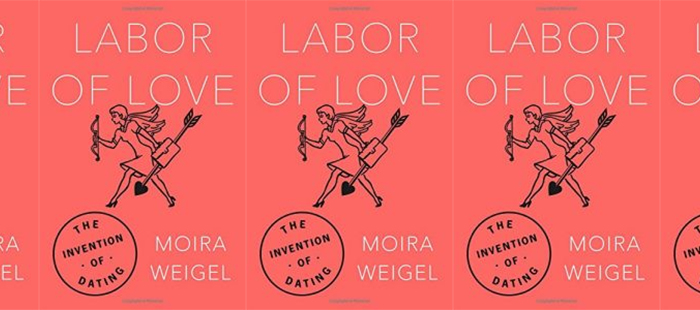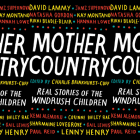Review: LABOR OF LOVE: THE INVENTION OF DATING by Moira Weigel

Labor of Love: The Invention of Dating
Moira Weigel
Farrar, Strass and Giroux, 2016
304 pp; $26
Reviewed by Andrew McKernan
What are you doing tonight? We should Netflix and chill.
Even without receiving that exact text, one knows the purpose, and the posture. Why those words, that pitched, disinterested tone?
In Labor of Love: The Invention of Dating, Moira Weigel argues the language and mores of dating constitute a codified system of class and identity politics. “I sensed that I was trying to make a life according to rules I did not understand and that the process had blinded me to my desires,” Weigel writes. “Following my desires was supposed to be the point. Yet I had never reflected long enough to discover whether the feelings that I believed should be there actually were. I had no idea who I was.”
Some buckets are easy to establish: white, middle-class, college-educated, urban. And Weigel writes through the past century’s dating trends with nuance and sensitivity to intersectionality. Post-Occupy Wall Street potshots at hippies are easy, yet Weigel writes: “Young radicals in New York and San Francisco knew they wanted something every different. […] They did not want a more fun, fearless version of the society they had grown up in. They wanted a new world altogether.” Weigel excises gay bars from their exotic, Othered context in straight literature, and of Harlem rent parties she writes, “Not everyone can rely on getting the same kind of access to public space.”
The gendered experience of dating is particularly crucial, as so many rules involve control of women’s bodies: how full a woman’s dance card, how unhappy a housewife, how promiscuous a student in college dorms’ hookup culture:
There is a consensus that men have all their lives ahead of them to fumble relationship after relationship. But women are assumed to have a limited window of time in which to find a partner before their attractiveness and their fertility wane.
This work operates on the level of sociolinguistics, cultural tendencies, The Body. Yet there are real bodies in spaces. When I go on a date there is an I, with subjecthood, just as there is for Weigel, or you. There is a tension between accepted and intended behavior, at which times the sensitive (I am thinking of Nelson’s The Argonauts) identify tensions between what one knows one should do, and what one desires.
Because often, our bodies are not safe. Throughout Labor of Love, Weigel emphasizes individual agency, safe spaces: not statistics about date rape, but consensual campus hookups; not the lynchings of gay or black bodies, but the safety of gay bars; not the hypocrisies of Woodstock but the utopia of free love. There is a sense that Weigel shies away from confronting the physical dangers of dating quite intentionally.
Drafts of this review began before Orlando. But now it is even clearer—all too clear—that while there are often bodies, in spaces, seeking to find comfort and love, all too often there are simply bodies.
Andrew McKernan holds an MFA from the University of New Hampshire, where I was fiction editor of the literary journal, Barnstorm. Some of my poetry and prose has been published or is forthcoming in Ninth Letter, Blunderbuss, Juked, Gabby Journal and others.



